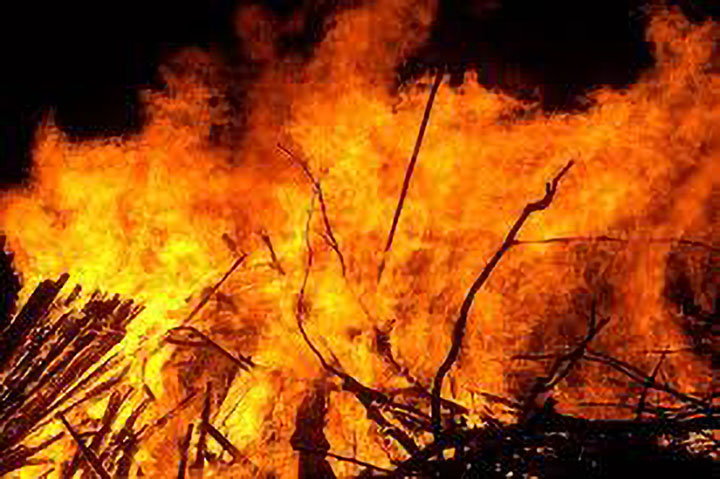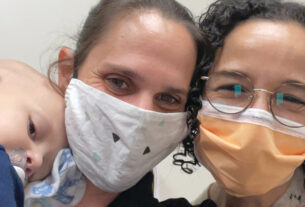“There was a great and mighty wind, but God was not in the wind. After the wind, an earthquake, but God was not in the earthquake. After the earthquake, fire, but God was not in the fire. After the fire – a still small voice” (I Kings 19:11-12).
God was not in the wind, God was not in the earthquake, God was not in the fire. The God of Israel is not a God of vengeance or wrath. The God of Israel does not bring about natural disasters as a means of so-called “Divine Punishment.”
“After the fire – a still small voice.”
Rashi: “It is a voice coming out of the silence, but the voice itself is not heard.”
In the aftermath of the fires, a voice emerges. It’s a voice we cannot hear, yet it calls out to us.
This mysterious paradox – a “silent voice, a voice we cannot hear” – is none other than God’s voice, reminding us who God really is:
“Hashem, Hashem, El Rahum V’Hanun” – “God, God, Compassionate and Gracious.”
“El Melekh Yoshev Al Kisse Rahamim” – “The Royal God who sits on a throne of compassion.”
That divine voice is more than a reminder; it’s our collective call to Imitatio Dei – to emulate the attributes of God.
“I am God, who performs acts of mercy, justice and charity, for it is such things that I desire on earth” (Jeremiah 9:23).
After the fire – a still small voice cries out to us to respond to the fires – with compassion, grace, mercy, justice and charity.
God was not in the wind, the earthquake or the fire. Only in the aftermath, calling upon us to clear the ashes of loss and replace them with bricks and mortar of hope.
This is our God, and this is our calling.
After the fire, this mysteriously silent voice lights a fire within each of us – to care, to love and to rebuild together. That’s what we’ve always done, and that’s what we’ll do.
God was not in the fire, but God’s voice is within us, guiding us through yet another Hurban, another destruction, calling on us, yet again, to rebuild.
When sitting in Spain and longing for Israel, Rabbi Judah Halevy famously wrote “Libi b’mizrach, va’anochi b’sof ma’arav” – “My heart is in the East, but I am at the edge of the West.” As a former Los Angeleno who now lives “in the East” – “My heart is in the West.”
With love to my friends, community and beloved city of Los Angeles, which – inspired by God’s compassionate voice and strengthened by our collective acts of kindness – will rise from the ashes to a better tomorrow.
I Love L.A.
Rabbi Daniel Bouskila is the international director of the Sephardic Educational Center.




